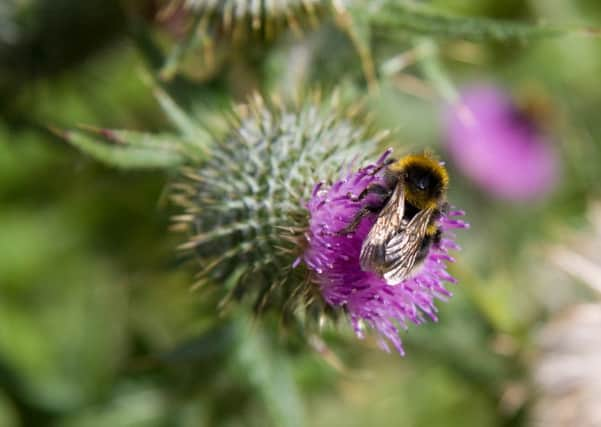‘Potentially deadly’ pesticide use sparks fears for future of precious bees


Beds is one of four English counties granted permission to use previously blacklisted neonicotinoid-treated oilseed rape seeds.
But the impact the pesticide - a relative of highly addictive nicotine - could have on wildlife and, in particular, struggling bees could be potentially lethal to the declining population.
Advertisement
Advertisement
Chairman of the Christian environmental charity Operation Noah Nicky Bull, whose husband keeps bees, said the risk is too great.
“I think the ‘precautionary principle’ is a very important one,” she said. “If you don’t know the consequences you don’t take the risk. You air on the side of safety.”
Bees and other pollinators are essential for many crops but are in decline due to pesticides, loss of habitat and disease.
Around a third of the food we eat, including beans, brassicas such as cabbage or broccoli, tomatoes, apples and strawberries rely, either directly or indirectly, on insect pollination.
Advertisement
Advertisement
Nicky said she is aiming to raise awareness of the latest threat alongside other environmental campaigners.
It is claimed that toxic neonicotinoid impair bees’ communication, homing and foraging ability, flight activity, ability to discriminate by smell, learning and immune systems - all of which have an impact on their survival.
The National Farmers Union’s request for a lift on the ban of neonicotinoid-treated rapeseed was approved by Defra last month.
The pesticide is being used by farmers in their struggle against flea beetle and the union disputes claims that the chemical kills pollinators.
Advertisement
Advertisement
Seeds are covered in the pesticide, which is then absorbed by the plant as it grows, making it resistant to bugs and viruses.
In December 2013, the European Commission issued a two-year ban on the chemical to allow time for additional data to be collected about its impact.
Nicky, who is looking forward to her first harvest of honey this year, said: “It does seem to me that for the government to allow even limited use of something on which they have placed a ban, which is due to run until December, seems to fly in the face of good scientific procedure.”
Other counties given permission to use the pesticide are Hertfordshire, Cambs and Suffolk.